Gas Generators vs. Solar Panels: A Cost Analysis
Solar Panels vs. Gas Generators: Two Champions Go Head-to-Head
Is it David vs. Goliath? The tortoise vs. the hare? Or the champion weightlifter vs. the marathon runner? Each analogy fits because any way of pitting these two off-grid power generators against each other isn’t completely fair. Other than producing an electrical current, they are not remotely similar. Even getting people to think differently about their off-grid power is a lot like asking them to switch political parties. Some believe solar is the only way to go for the planet, and others can’t imagine giving up the anytime reliability of their gas generator.
How each produces electricity and the conditions under which they perform best are as different as opposing ends of the political spectrum. Solar panels quietly do their thing every time the sun rises, but clouds, and obstructions take a bit of the fight out of them; they are very reliable when it’s sunny. Gas generators are essentially small engines cranking out electricity as long as they have fuel, but they can be heavy, loud, smelly, and require a lot of maintenance.
Considering the costs and benefits that go into the lifespan of these products, from the manufacturing process right down to using it in a crowded campground, helps us get a clearer vision of an overall winner. Let’s see how well each champion stacks up!
Let’s Meet Our Contestants!
In one corner we have the Renogy 100W Solar Suitcase. Weighing in at 27 lbs. and capable of putting out approximately 100W DC (21.6V at 6.16A). Its overall folded dimensions are 19.9 x 27.2 x 2.8 inches.
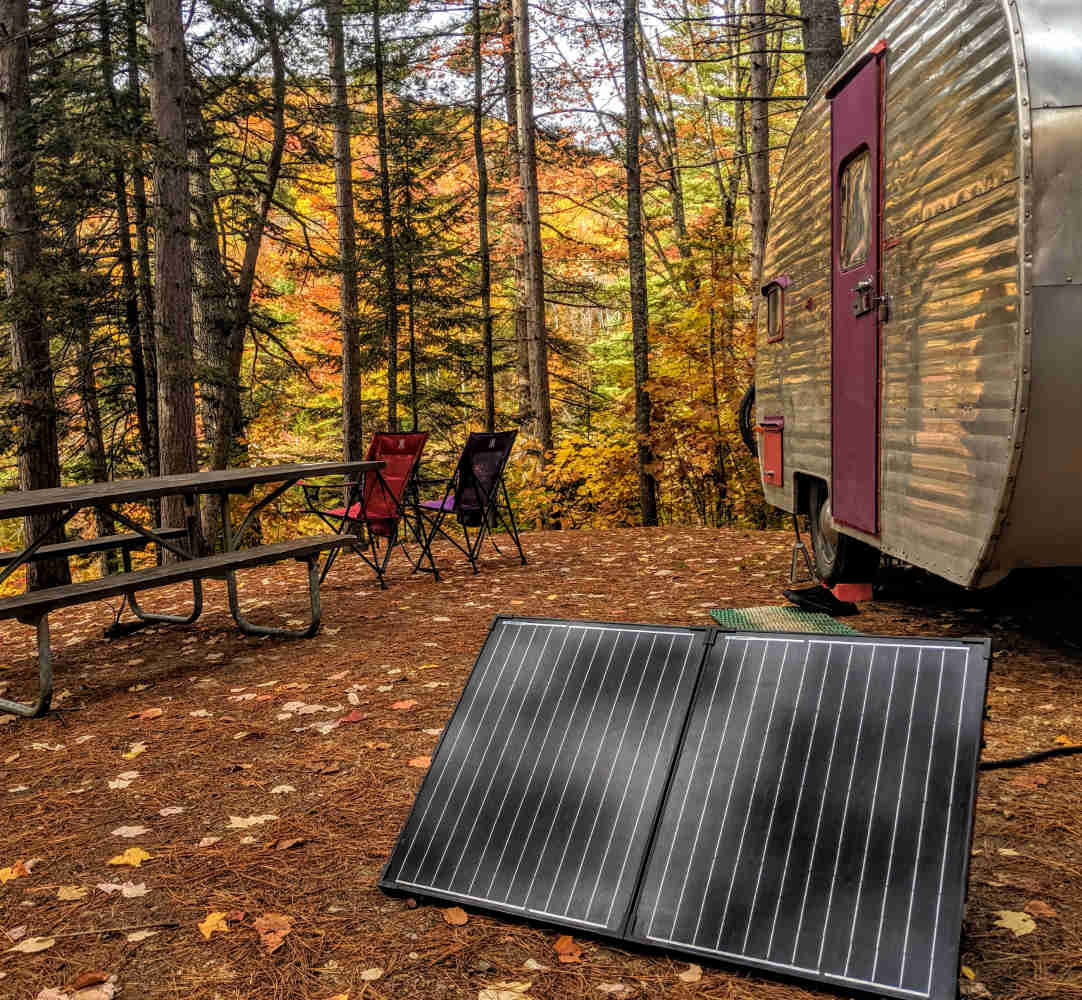
In the other corner we have one of the top-selling, quiet-running, gas-powered generators at Amazon.com (Generac 7117 GP 2200i). Weighing in at 53 lbs (when fueled), and capable of putting out approximately 1,700W AC (120V at 14.1A). Its overall dimensions are 19 x 11 x 17 inches.
Round 1: Cost per Hour vs. Cost per Power
Solar Suitcase:
- Price = $235 on Renogy.com
- 5-year warranty on manufacturing defects and 25 years on power output
- Average lifespan at 25 years, 6 hours per day = 55,000 hours
- 1 hour = $.0042 (less than a half penny for each hour)
Gas Powered Generator:
- Price = $600 on Amazon.com
- Limited 2-year warranty
- Average lifespan of gas-powered generators is 2500 hours.
- 1 hour = $.24 (almost a quarter for each hour)
Going solar appears to be a cheaper investment per hour, but here’s where the judges may split their decision. The gas generator is able to do the job of charging batteries faster and carry a much bigger load than the solar suitcase, so the cost of performing the same electrical task for each hour of run time will look different. That being said, for the cost of one gas generator you could nearly purchase 3 solar suitcases and that changes the equation yet again. So, it’s a matter of whether you prefer to save money each hour, or spend money for power.
WINNER: Draw
Round 2: Manufacturing Costs
Both Renogy and Generac are American companies, headquartered in the U.S. Though much of the engineering and designing occurs at home, much of the manufacturing for these products takes place overseas. Also, each process uses harmful chemicals and materials, so neither can claim a more environmentally-friendly higher ground.
WINNER: Draw
Round 3: Power Output
Solar Suitcase: 100W (max)
Gas Powered Generator: 2200W (max)
In terms of immediate power output, the gas-powered generator packs a much bigger punch, making it the clear winner.
WINNER: Gas Powered Generator
Round 4: All Weather & Anytime Reliability
Solar Suitcase: Doesn’t train or fight in the rain, or at night.
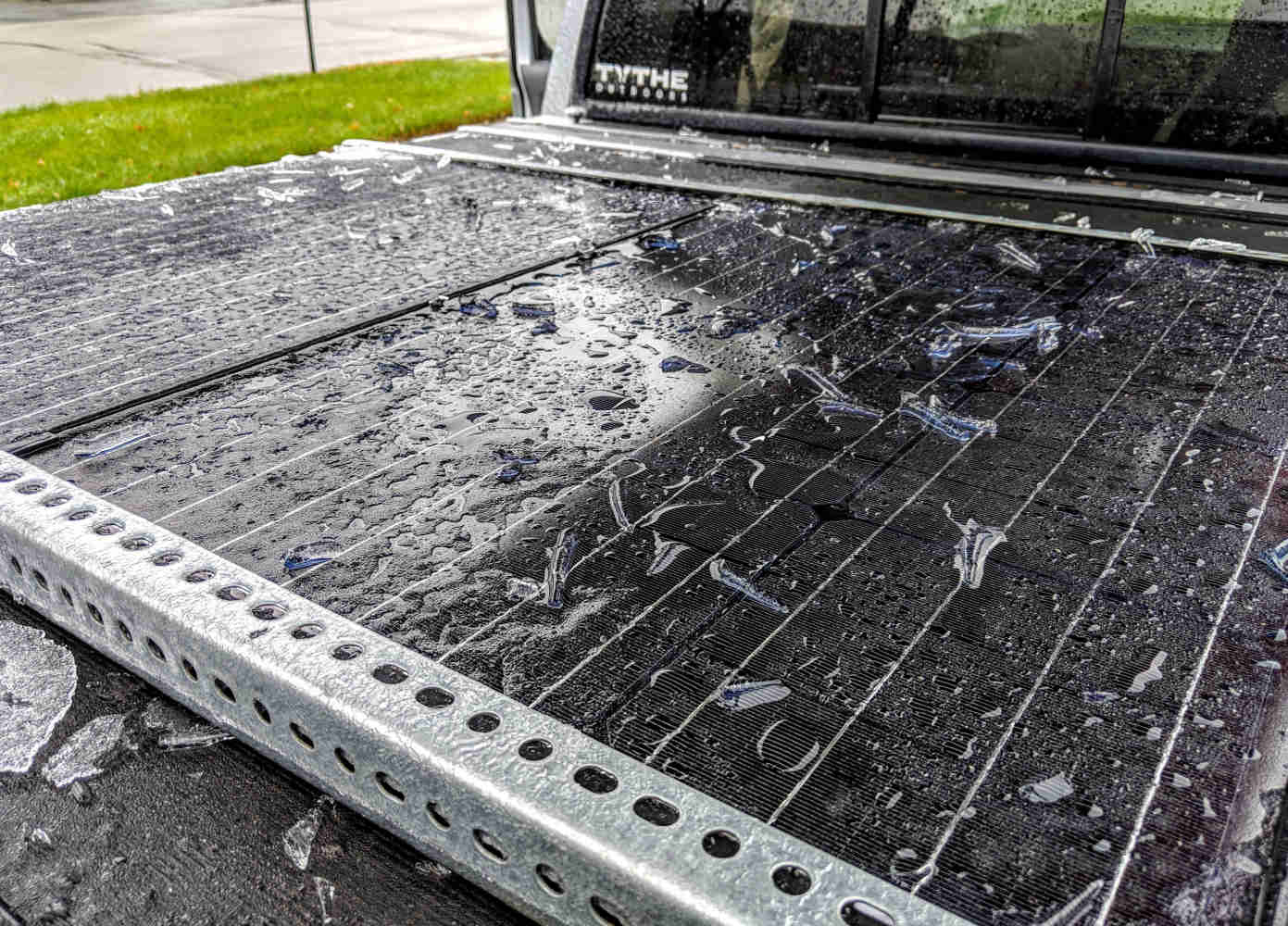
Gas Powered Generator: Runs whenever you fill it up and pull start.
This category might hit a little below the belt because as the name applies, solar panels work best when the sun is out. However, the gas generator can operate in most weather conditions, day or night, making it the clear favorite. Remember, with solar power you are charging a battery bank, so you can typically operate as usual without the sun shining for 2-3 days.
WINNER: Gas Powered Generator
Round 5: Ease of Use & Storage
Solar Suitcase: No babysitter required.
When in use, this contestant doesn’t need a trainer or supervisor. Just place it in a good south facing location, and head out for the day. When it’s time to store it away, one person can easily fold it up, lift it by its integrated handle, and stow it under the bed, behind the couch, or in a storage compartment.

Gas Powered Generator: Gotta keep an eye on it.
When in use, a trainer is needed for supervision. You are not allowed (nor is it safe) to run a generator at your campsite while you are off adventuring for the day. Moving even a small, gas powered generator around can be difficult depending on your size and strength, as its weight is similar to an average 7-8 year old child.
WINNER: Solar Suitcase
Round 6: Long-Term Running Cost
Solar Suitcase: Big Fat Zero!
Beyond the initial investment in equipment and installation, solar panels cost nothing to run.
Gas Powered Generator: $700 - $900 (average lifetime cost of gas, not including maintenance)
The gas-powered generator has a run time of 10.75 hours at 25% load on one tank. The gas tank capacity is 1.2 gallons at a 3-year national average of $2.85 per gallon of unleaded gas ($3.42 per 10.75 hours) or $0.32 / hour. Price will vary in your area. Over the life of the gas generator, you can expect to pay another $800 for 2500 hours of running time at current fuel prices. As the price of fuel fluctuates, the cost will go up or down.
WINNER: Solar Suitcase
Round 7: Noise Pollution
Solar Suitcase: No sound, not even a peep!
Gas Powered Generator: 60-70 decibels
This is an arbitrary category, as some people are more sensitive to noise than others. We may be camped alongside a river that is far louder than the neighbor’s generator. However, it’s fair to argue that whether you are bothered by that level of noise or not, it remains an unnatural sound. We often go camping to immerse ourselves in a natural environment, and these mechanical sounds hinder that full immersion. This is why every campground we’ve ever stayed in has posted quiet hours, including specific generator run times.
While this specific model runs on the quieter side of portable generators, between 60-70 decibels, it’s important to recognize that noises approaching 70 decibels can be annoying (and decibels are rated exponentially -- 60 is half of 70; 80 is twice as much as 70). For example, 60 decibels is equivalent to the sound of a window air-conditioner unit at 100 feet away; 70 decibels is like a passenger car traveling at 65 mph at a distance of 25 ft away. When you approach 80 decibels, we are talking about garbage disposals, an average factory, or freight train at 50 feet away. Many popular generators produce more than 70 decibels, as the quieter models tend to be much more expensive. This might be fine if you are inside jamming classic rock or watching Monday Night Football, but what about your neighbor?
WINNER: Solar Suitcase
Round 8: Maintenance
Solar Suitcase: Requires little in the way of maintenance.
Maybe a little sponge and squeegee action on the glass, maybe a new MC-4 connection here or there, but otherwise point it toward the sun and you’re good to go.
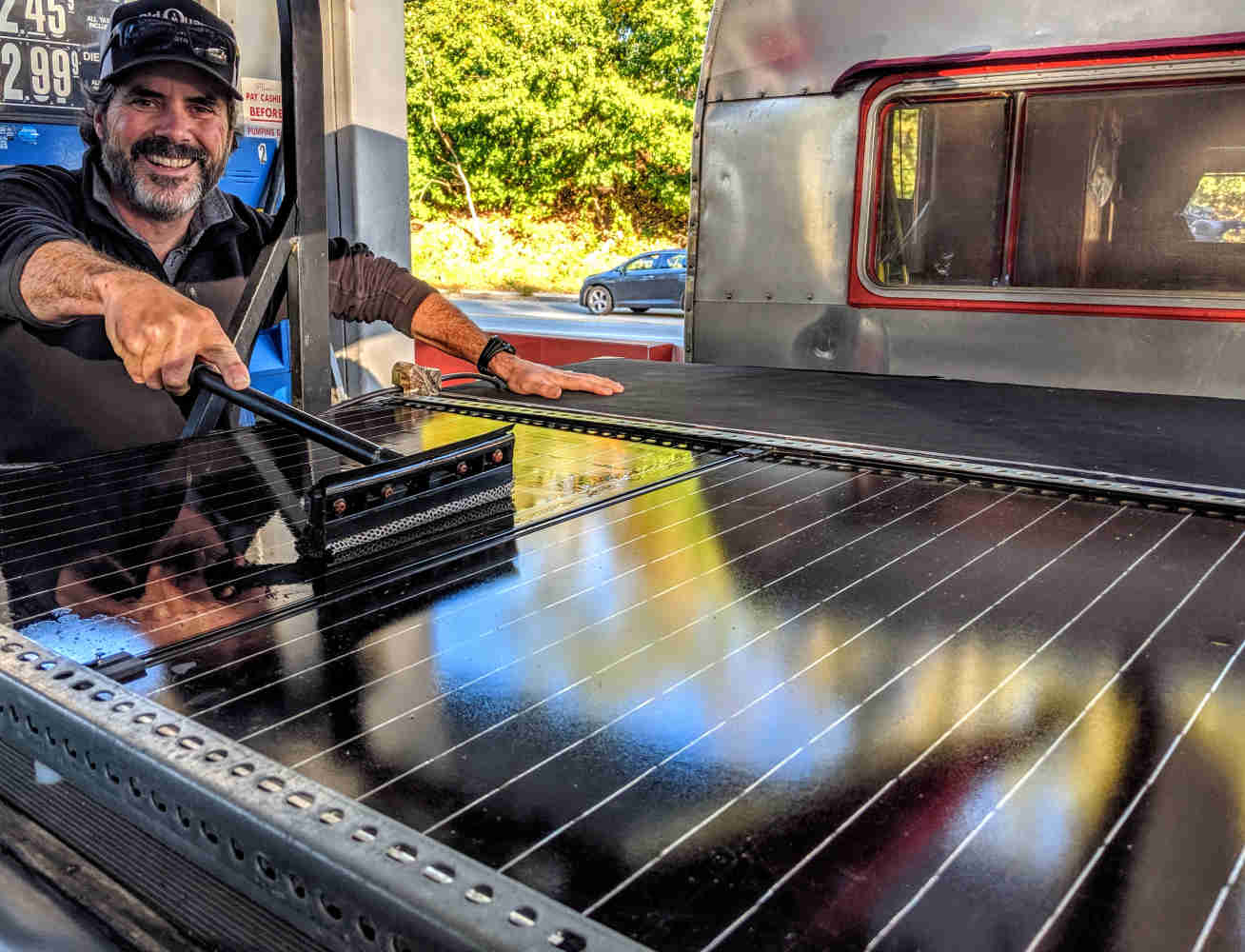
Gas Powered Generator: Requires regular maintenance.
This is an engine that requires oil, fuel, air intakes, and the appropriate filters for each. The product manual has a specific list of things to inspect and change for every 50, 100, and 200 hours of run time per season. Storing the generator for any length of time also requires special attention, tools and skills.
WINNER: Solar Suitcase
Round 9: Disposal
Solar Suitcase: Some recyclable parts.
Because they are made of silicon, glass, aluminum and plastic, in addition to some heavy metals, it isn’t exactly environmentally friendly. Though much of this material is recyclable, separating them in order to do so is another matter. But just chucking them in the landfill isn’t a viable option either. While the solar panel recycling industry in the US lags far behind Europe (where it is mandated by law), it is highly likely that this technology will improve significantly within the lifespan of any recently purchased solar panels (30 years). With the increase in demand for panels, efficiency in the manufacture, use, and recycling of spent products will also increase.
Gas Powered Generator: Some recyclable and salvageable parts.
These are also made up of many recyclable materials (aluminum, steel, and plastic) in addition to some potentially toxic oil and fuel residues. Breaking down a generator into its component parts is certainly easier on the small scale than a solar panel. You might even be able to sell it to a repair shop for more than you would get as scrap metal.
At first glance it looks like the gas generator is the winner here, however it’s not that clear cut. Depending on how often you need to generate power off-grid, you will likely go through several generators (4-6 generators if you are a full-time RVer) during the same lifespan of a single solar panel. Even with sparing use, it is unlikely that a portable gas generator will last the same number of years as your solar panel. More generators needed to perform the same task, means more generators to recycle later.
WINNER: Solar Suitcase
And, the WINNER is…?
Scoring our categories as equal rounds, the Solar Suitcase is the clear champion -- winning 5 of the 9 rounds, with an additional 2 ending in a draw.
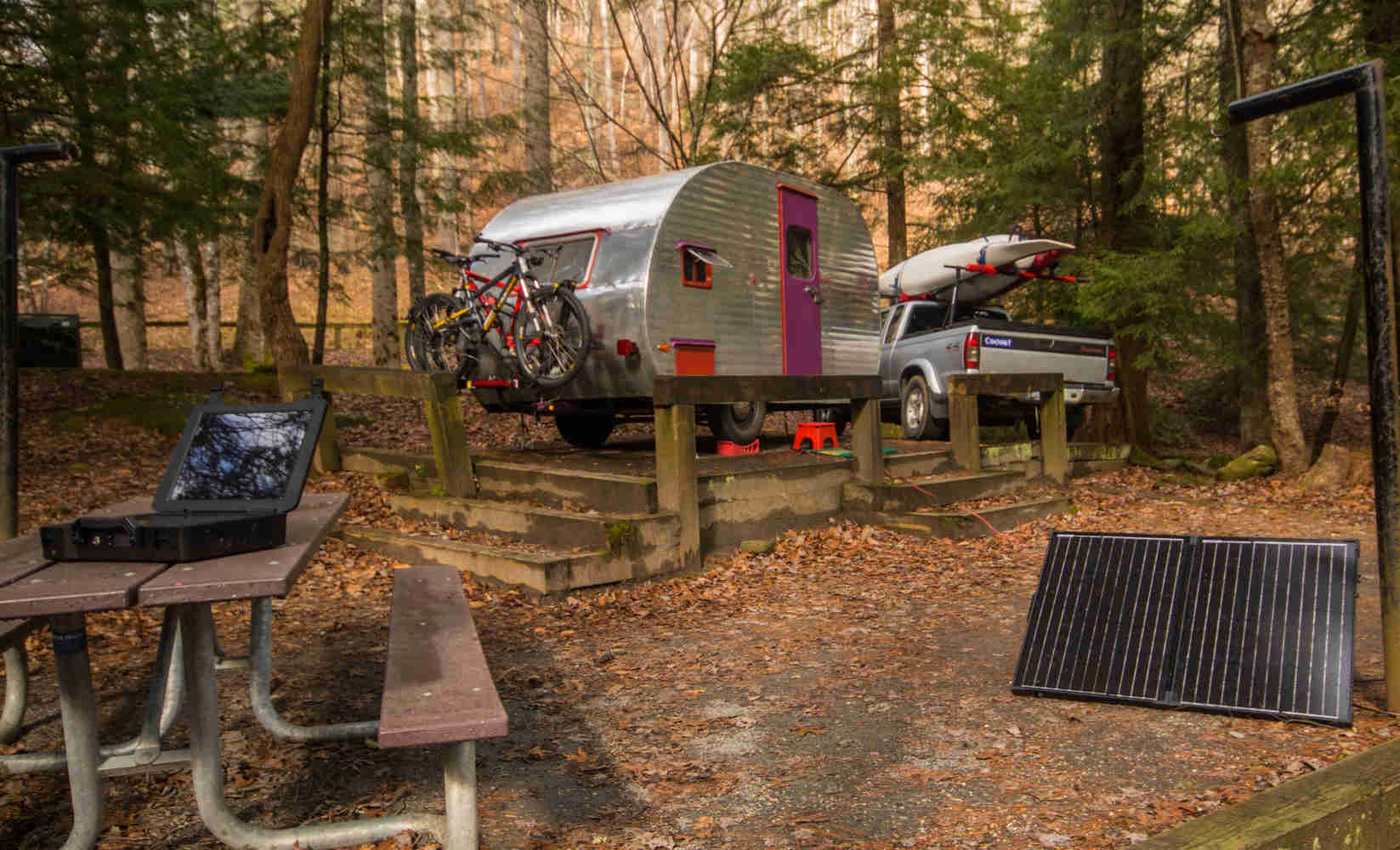
Not convinced yet? It may be that one category might be so important to you as to knock out the rest from consideration. You may overvalue reliability, which is great if you are boondocking in the middle of the national forest with no one else around. But, if you are in a crowded national park campground, you might find your ability to run a solar generator limited to just a couple hours in the morning and again in the evening. As more and more people venture outside to enjoy nature, remaining good neighbors will be an increasing priority. Some campgrounds have gone so far as to ban portable generators entirely, choosing instead to provide all campsites with electrical -- a solution which will only drive up the cost of campsites.
Both of these products do what they do best in a reliable and consistent way. With solar panel technology becoming more and more efficient, a whopping 26% increase in the last 7 years, using gas engines to make power could simply become a thing of the past.
Ready to go solar? Get 10% off Renogy products by using this link and our discount code (canlife). We always love hearing from our readers and help work out solutions, so contact us with any questions or comments.
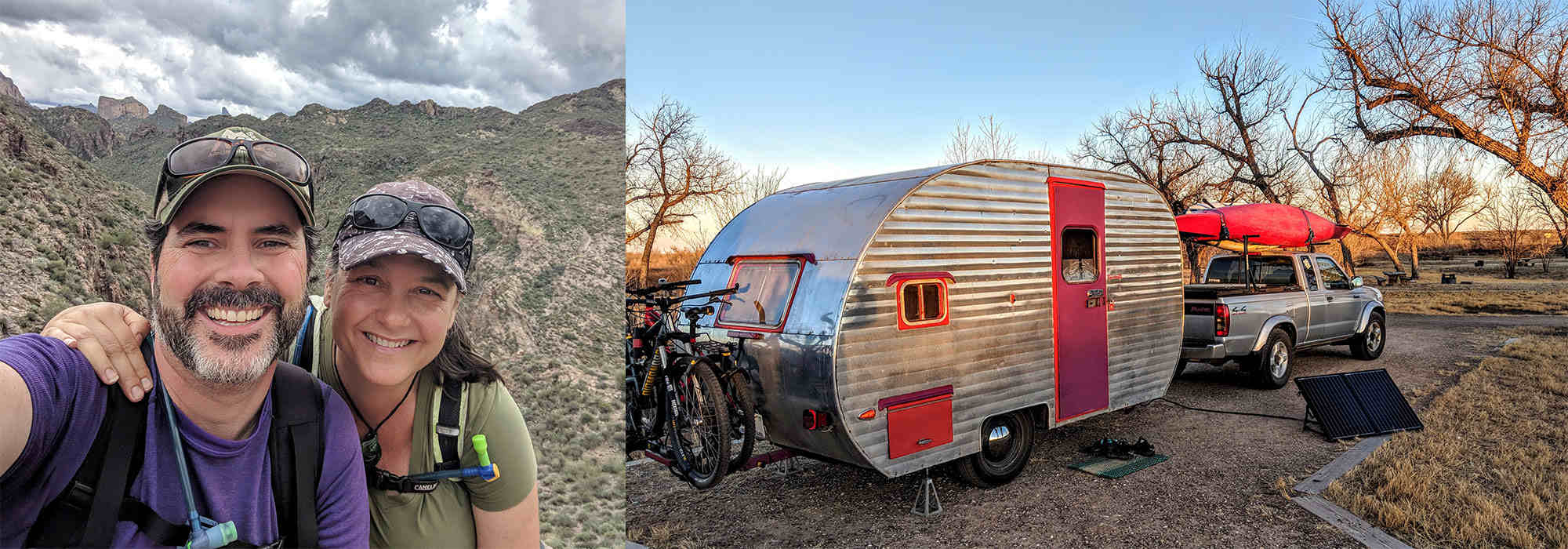
Shari Galiardi & David Hutchison have turned their higher education backgrounds, desire for life-long learning, and thirst for adventure travel into writing, photography, video production, and public speaking tours from coast to coast. Known to their friends as simply Shari & Hutch, you can learn more about their full-time, solar powered adventures on their website at freedominacan.com. Or, follow them on Facebook, Instagram, and YouTube as “Freedom in a Can.”
See other related articles at Renogy:
Solar Panels 101: A Beginner's Guide
The Ultimate Guide To DIY Off-Grid Solar Systems
Do solar panels increase home value
how efficient are solar panels
How Many Solar Panels Do I Need








